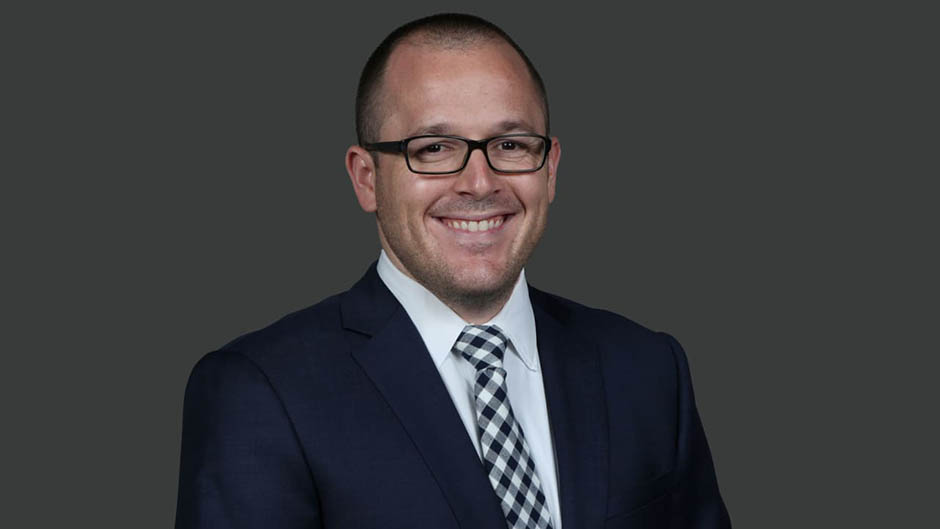Born and raised in South Florida, Shore received a B.S. in accounting and business from Elon University and then earned a J.D. from the University of Miami School of Law. With a varied career path over the past decade, he now oversees the daily administration of football and business operations for the Miami Dolphins.
“I would not work for Miami Dolphins if I did not go to Miami Law because of geography and proximity,” Shore said. “In school, I went to so many networking events, which do not have a good return on investment, but play the odds—you only need one to work.”
And that is how Shore networked his way to the top of the Dolphins organization. “Take as many shots as you can—since you never know which one will benefit you,” Shore advised.
Shore steadily rose through the ranks in various financial and administrative roles. Shore started with the Dolphins as a football administration assistant in 2010. He has also worked in the finance and legal department, then in the human resources office. His dedication and expertise in football operations and strategic planning eventually led to his current executive position, where he plays a crucial role in the team's success.
He shared three key insights with the audience.
1. Preparation is crucial.
Shore emphasized the importance of thorough preparation before entering negotiations to make well-informed decisions.
“I want to approach decisions, knowing that I have done the necessary work to put me in the position to make the best decision, and for the right reasons,” Shore said. “I get plenty of decisions wrong, but I would not be upset as much for a bad outcome as for a bad process.”
Because negotiation is precarious, Shore recommended focusing on the process: “If the process is good, sound, thorough and researched, I can live with the outcomes,” Shore said. “More often than not, the outcomes would be close to what you want.”
He also highlighted the need for a good process and surrounding oneself with the right people. "If you get the people right and you develop the right process," Shore said, "then the outcomes are inevitable."
2. Learn from mentors and bosses, both the good and the bad.
Shore recounted his transition from the legal unit to human resources, thanks to mentors who identified his strengths. Even earlier during his schooling at Elon University, Shore shared that he was fortunate enough to have mentors who played an integral role in his development as an undergraduate student.
“You can learn how to do things from a good boss,” Shore said. “And you can learn how not to do things from a boss who is not good—which is just as valuable. You learn as much from the bad experiences and the bad bosses as you do from the good ones—that is for sure,” Shore concluded.
3. Address imposter syndrome.
When asked if he ever has self-doubt, Shore quickly admitted he has “a ton.”
“I had never heard of it [imposter syndrome], until recently,” he said. “I have this job that has a fancy logo and a big title, but when I look in the mirror, I see the 23-year-old intern who just got hired for $7 per hour. And it’s been a unique transition to look in the mirror and not see that anymore,” he said.
Imposter syndrome is the internal experience of feeling like a phony or that you don't deserve the success you have achieved in life.
Shore said he still battles with imposter syndrome, but what keeps it at bay is knowing nobody is going to outwork him and that nobody wants it more than him.
Shore added that he strives to justify his position daily, not out of insecurity, but in recognition of the trust placed in him by others.

